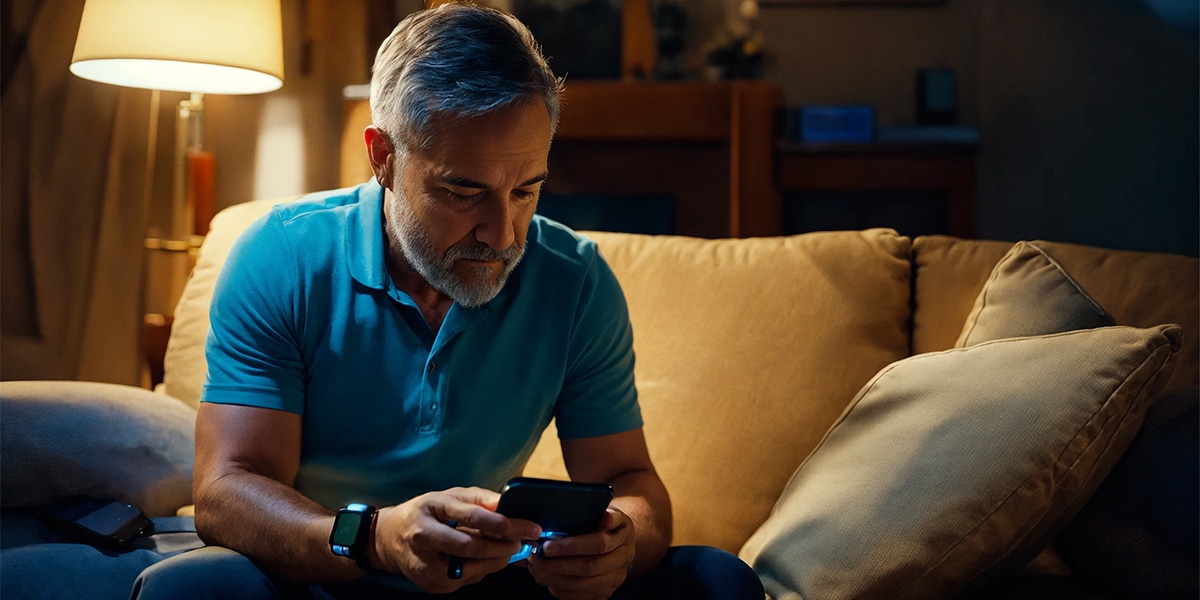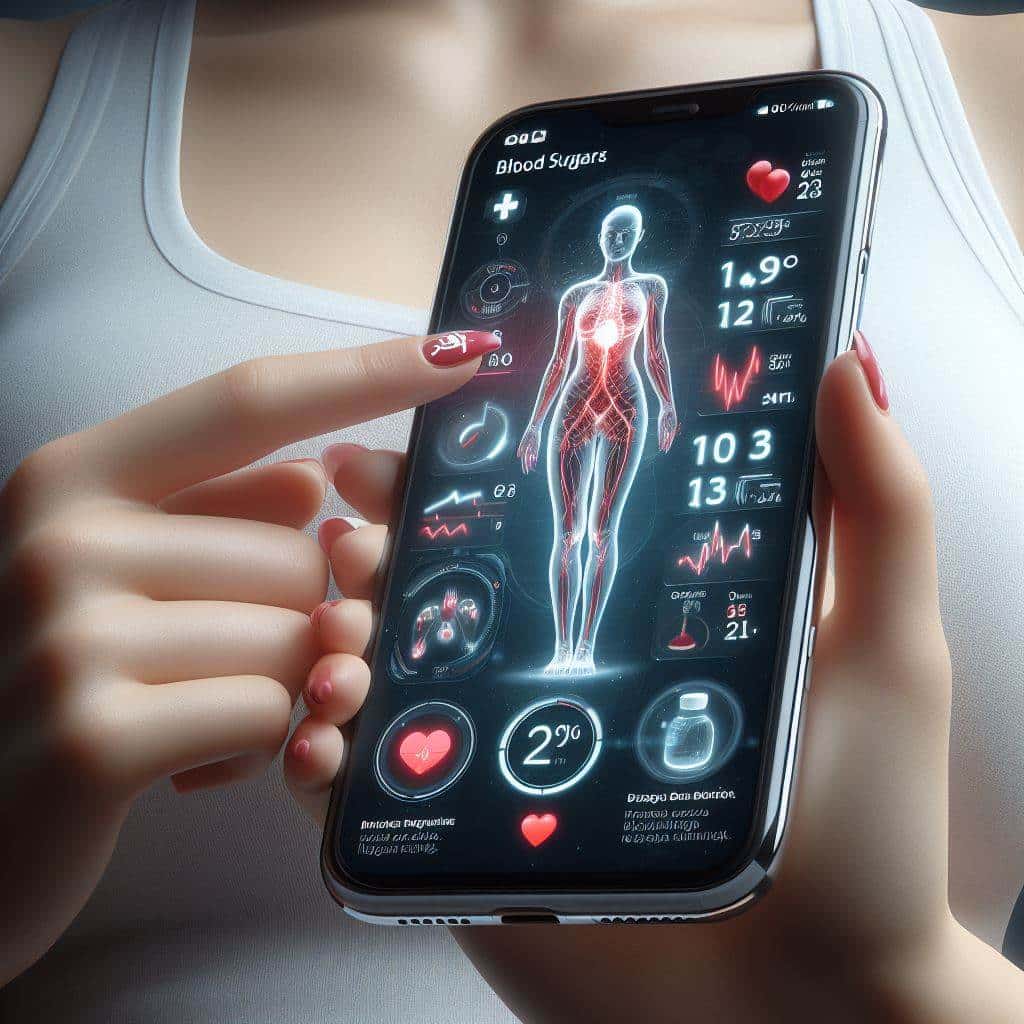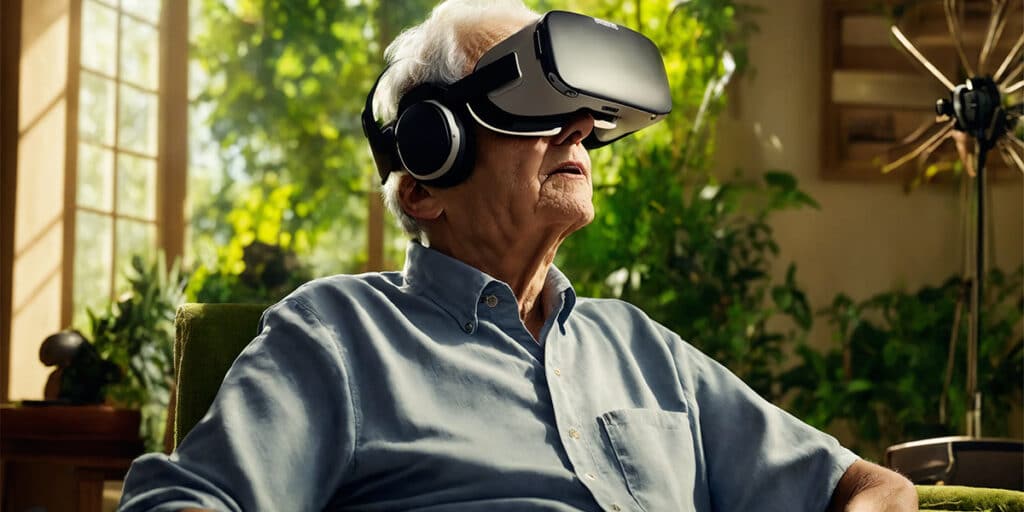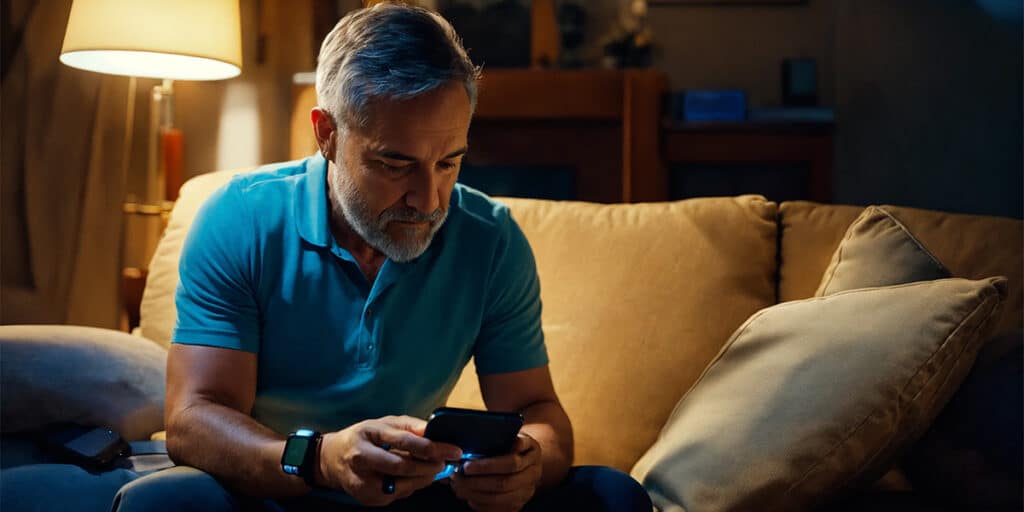In an era where digital innovation intersects with healthcare, gamification emerges as a transformative approach to managing chronic conditions such as diabetes. Gamified health apps and tools are revolutionizing the way individuals monitor their blood sugar levels, turning routine tasks into engaging and motivational experiences.
This article explores the dynamic world of gamified blood sugar tracking, revealing how it’s making diabetes management not just manageable but enjoyable.
The Power of Gamification in Healthcare
Gamification applies game-design elements in non-game contexts to motivate participation, engagement, and loyalty. In diabetes management, gamification introduces elements like points, levels, challenges, and rewards to encourage users to regularly check their blood sugar levels, adhere to medication schedules, and maintain a healthy lifestyle.
- Increased Engagement: Users are more likely to participate in their health care regimen when it’s fun and rewarding.
- Behavioral Change: Gamified apps promote healthy habits through positive reinforcement.
- Social Connectivity: Many apps offer community features, fostering support and competition among users.
Benefits of Gamified Blood Sugar Tracking
Making Routine Monitoring Enjoyable
Gamified tracking apps transform the monotonous task of blood glucose monitoring into a fun activity. Through challenges and rewards, users find motivation to regularly check their levels, leading to better glycemic control.
Encouraging Consistent Engagement
- Daily Missions: Users receive daily goals, making every day a new opportunity for achievement.
- Progress Tracking: Visual representations of progress encourage continued use and self-improvement.
- Reward Systems: Points or badges for achieving goals boost motivation.
Enhancing Education and Awareness
The integration of interactive quizzes and information sessions into gamified apps represents a dynamic shift in how individuals with diabetes engage with educational content about their condition. This innovative approach transcends traditional didactic methods, offering a more engaging and effective way to enhance education and awareness about diabetes management.
Interactive Quizzes: A Game-Changer in Learning
Interactive quizzes within these apps serve as a powerful tool for reinforcing knowledge and clarifying misconceptions about diabetes management. By presenting information in a question-and-answer format, users are encouraged to actively think about the material, leading to better retention of knowledge. These quizzes often come with instant feedback, allowing users to understand why their answers are correct or incorrect, further solidifying their learning. The gamified nature of quizzes, complete with points, levels, or badges for correct answers, adds a layer of motivation missing from traditional educational materials.
Information Sessions: Beyond the Basics
Beyond quizzes, gamified apps often feature information sessions that delve deeper into the nuances of diabetes management. These sessions might take the form of short, animated videos, interactive tutorials, or scenario-based learning modules. They cover a wide range of topics, from the science behind blood sugar fluctuations to practical advice on diet, exercise, and medication adherence. The interactive and multimedia aspects of these sessions make complex information more digestible and engaging, appealing to users with diverse learning preferences.
The Impact on Self-Efficacy
One of the most significant impacts of integrating education and awareness into gamified apps is the increase in users’ self-efficacy regarding their ability to manage their diabetes. Self-efficacy, or the belief in one’s ability to take action and achieve specific outcomes, is crucial in chronic disease management. As users engage with interactive content and build their knowledge base, they gain confidence in their decision-making and management skills. This empowerment leads to more proactive and effective self-management behaviors, from monitoring blood sugar more diligently to making healthier lifestyle choices.
Bridging the Knowledge Gap
Gamified apps also play a crucial role in bridging the knowledge gap that often exists between healthcare providers and patients. By providing accessible and understandable information, these apps ensure that users are well-informed about their condition, even outside of clinical settings. This knowledge not only enables users to take better care of themselves but also facilitates more meaningful conversations with their healthcare providers, leading to better overall care.
| App Name | Key Features | Platform | User Rating | Cost |
|---|---|---|---|---|
| Glucose Quest | Adventure game, challenges | iOS, Android | 4.5 | Free |
| Diabetesville | Simulated world, missions | iOS, Android | 4.7 | Free with in-app purchases |
| Blood Sugar Buccaneers | Pirate-themed, rewards | iOS, Android | 4.8 | Free |
| InsuLand | Island exploration, daily tasks | iOS, Android | 4.6 | Free |
| My Glycemic Adventure | Quests, personalized feedback | iOS, Android | 4.4 | Free |
Fostering a Supportive Community
In the journey of managing diabetes, the power of community support is unmatched. Gamified approaches to blood sugar tracking leverage this by incorporating features that not only motivate individual users but also foster a sense of belonging and shared purpose.
Leaderboards
Leaderboards are a staple of gamification, offering a visual representation of progress not just for the individual but within the broader user community. By allowing users to see where they stand in comparison to others, leaderboards ignite a healthy sense of competition that can drive motivation. This feature taps into the natural human desire for recognition, encouraging users to engage more deeply with their diabetes management practices to improve their ranking.
Sharing Achievements
The ability to share achievements with one’s social network acts as a powerful motivator. Gamified apps often allow users to broadcast their successes, such as meeting a blood sugar level goal or completing a challenge, directly to social media platforms. This not only increases the user’s sense of accountability but also opens up avenues for receiving support and encouragement from friends and family. The social validation that comes from sharing achievements can significantly boost morale and commitment to ongoing diabetes management.
Community Challenges
Participation in community challenges within these apps fosters a sense of camaraderie among users. These challenges, often centered around common goals like achieving a collective step count or logging blood sugar levels consistently, encourage users to work together, share tips, and offer support. This collaborative aspect of gamification strengthens social bonds and provides a shared sense of accomplishment, making diabetes management feel like a team effort rather than an individual struggle.
Integrating Gamification with Technology
The sophistication of gamified diabetes management apps is greatly enhanced by their integration with cutting-edge technology, from wearable devices to artificial intelligence (AI) and augmented reality (AR).
Wearable Integration
The synchronization of wearable devices with gamified apps offers a seamless way to track blood sugar levels automatically. Wearables, such as CGM sensors, relay real-time data directly to the app, eliminating the need for manual entry and ensuring that the information is current and accurate. This integration not only simplifies the tracking process but also enriches the gamified experience with up-to-date data that can influence game dynamics and challenges.
AI-Powered Insights
Artificial intelligence within these apps takes the massive amount of data collected from wearables and user inputs to provide personalized insights and recommendations. AI algorithms analyze patterns in blood sugar levels, diet, exercise, and more to offer tailored advice that can help users better manage their condition. These insights can manifest as customized challenges, feedback on progress, or suggestions for lifestyle adjustments, all designed to enhance the effectiveness of diabetes management.
Augmented Reality
Augmented reality brings an exciting dimension to gamified diabetes apps, especially in promoting physical activity. AR experiences can guide users through exercise routines, treasure hunts, or interactive stories that not only encourage movement but also make the process enjoyable. By blending the digital and physical worlds, AR experiences can significantly contribute to better health outcomes, such as improved glycemic control, through engaging and immersive activities.
In conclusion, the incorporation of community features and advanced technology into gamified approaches for blood sugar tracking represents a holistic strategy for diabetes management. By fostering a supportive community, these apps offer users the encouragement and motivation needed to persist in their management efforts. Simultaneously, the integration with technology like wearables, AI, and AR enhances the tracking accuracy and personalizes the experience, making diabetes management not just effective but also engaging and enjoyable.
Gamified Approaches to Blood Sugar Tracking: Your FAQs Answered
What is gamification in blood sugar tracking?
Gamification involves using game design elements in non-game contexts, like diabetes management, to motivate and engage users in their blood sugar tracking and health habits.
How do gamified apps improve diabetes management?
By making tracking and management tasks more engaging and rewarding, gamified apps can increase adherence to blood sugar monitoring and healthy behaviors.
Are these apps suitable for all ages?
Yes, most gamified diabetes apps are designed to be user-friendly and engaging for a wide range of ages, from children to adults.
Can I use these apps without a continuous glucose monitor (CGM)?
While some apps are enhanced by CGM integration, many offer manual entry options and are beneficial without direct CGM connectivity.
Do gamified diabetes apps replace medical advice?
No, these apps are tools to aid in management and should complement, not replace, professional medical advice and treatment plans.
How accurate are the health recommendations from these apps?
Recommendations are generally based on general guidelines and user input; always consult healthcare providers for personalized advice.
Can these apps connect with my healthcare provider?
Some apps offer features to share data with healthcare providers, enhancing communication and care planning.
What should I look for in a gamified diabetes management app?
Look for apps with positive user reviews, engaging gameplay, features relevant to your management needs, and privacy/security settings.
Are there costs associated with these apps?
Many gamified apps are free, but some may offer in-app purchases for additional features or content.
How do I get started with a gamified approach to diabetes management?
Choose an app that appeals to you, download it on your smartphone, and start exploring its features and games to integrate it into your daily routine.
Citations
- Lumsden, J., Edwards, E. A., Lawrence, N. S., Coyle, D., & Munafò, M. R. (2016). Gamification of Cognitive Assessment and Cognitive Training: A Systematic Review of Applications and Efficacy. JMIR Serious Games, 4(2), e11. This review evaluates the application and effectiveness of gamification in cognitive assessments and training, offering insights into how similar approaches could benefit chronic disease management.
- Cugelman, B. (2013). Gamification: What it is and why it matters to digital health behavior change developers. JMIR Serious Games, 1(1), e3. This article discusses the concept of gamification and its significance in developing digital tools for health behavior change, providing a foundational understanding of how gamified elements can enhance patient engagement.
- Hamari, J., Koivisto, J., & Pakkanen, T. (2014). Do Persuasive Technologies Persuade? – A Review of Empirical Studies. In Proceedings of the 9th International Conference on Persuasive Technology (PERSUASIVE 2014). This compilation of empirical studies assesses the persuasive power of technologies, including those used in health-related apps, highlighting the potential of gamification to motivate users.
- Theng, Y.-L., Lee, J. W. Y., Patinadan, P. V., & Foo, S. S. B. (2015). The Use of Videogames, Gamification, and Virtual Environments in the Self-Management of Diabetes: A Systematic Review of Evidence. Games for Health Journal, 4(5), 352-361. This systematic review specifically explores the use of videogames and gamification in diabetes self-management, evidencing their effectiveness in engaging patients in their care routines.








